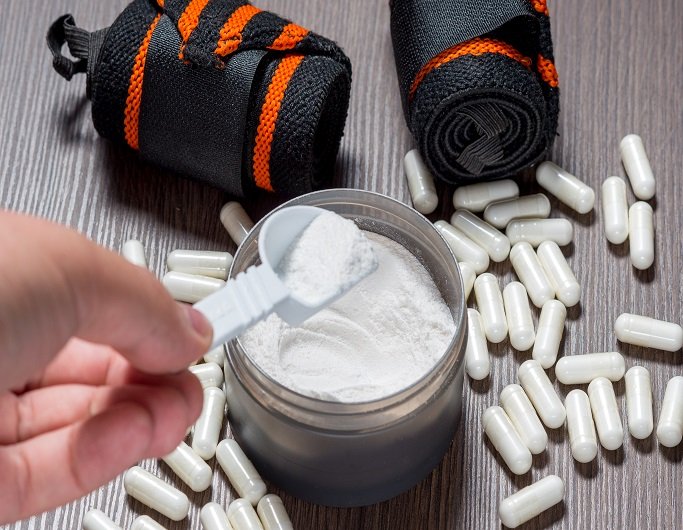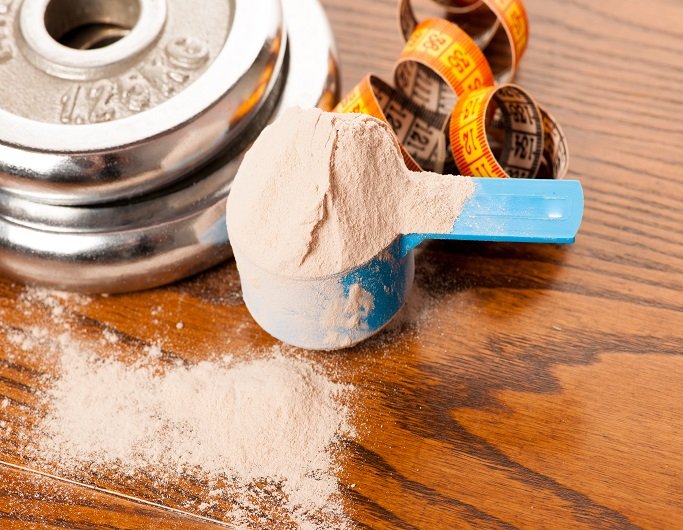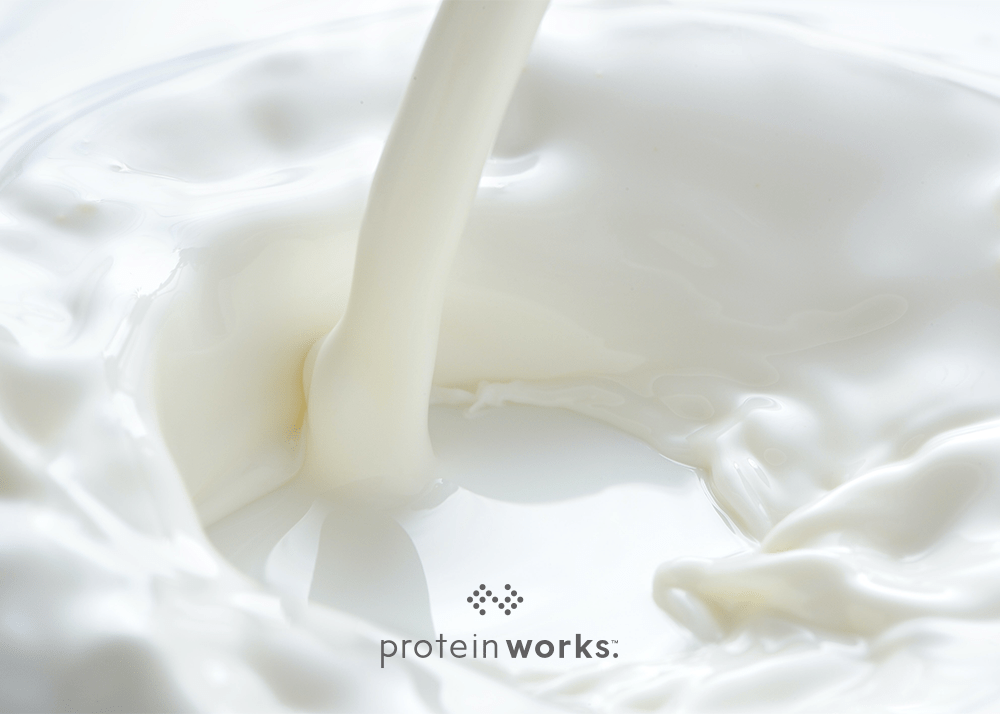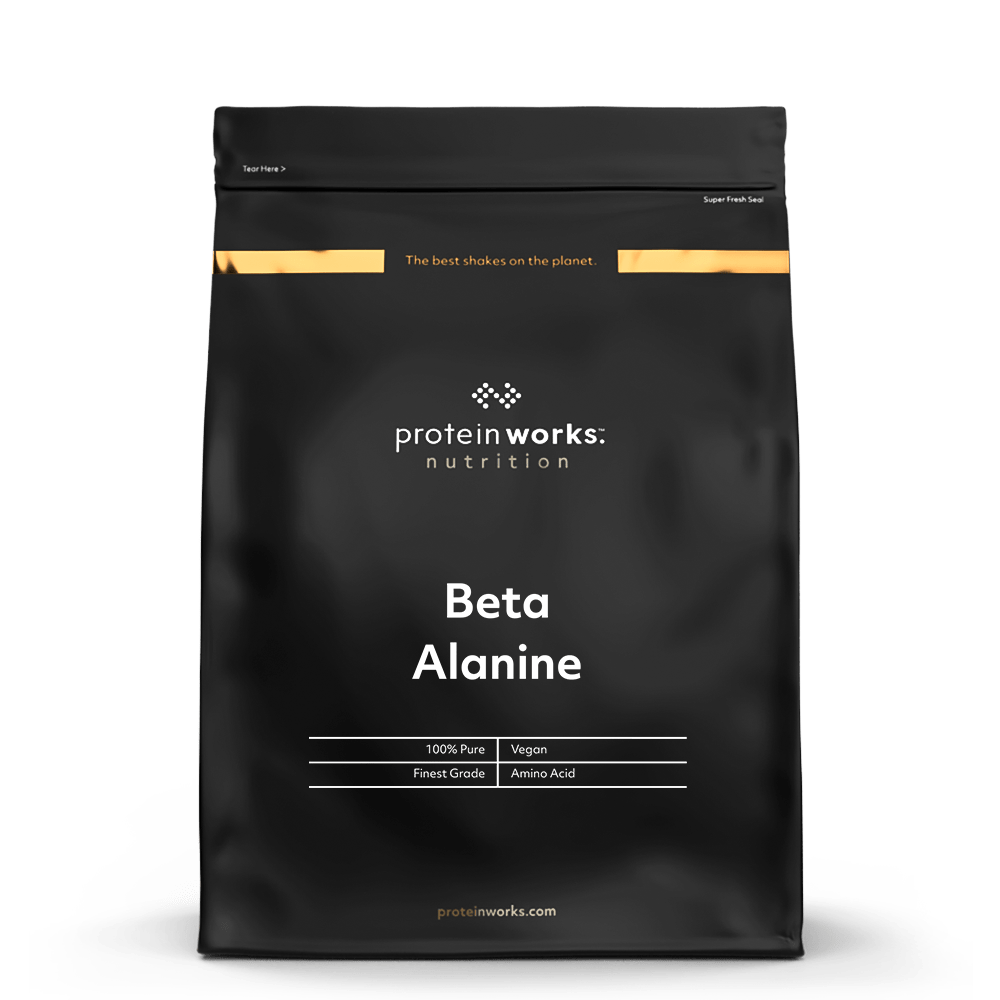
Best Muscle Building Pills Explained 2019
All sports scientists will tell you that increasing muscle mass and inducing muscular hypertrophy (the process of building new muscle) requires both a well planned training regime coupled with the right nutrition plan that has the correct balance of macronutrients (protein, carbs and fats) as well a sufficient supply of micronutrients. But studies also show that certain muscle building pills could also greatly help. Here THE PROTEIN WORKS Sports Scientists break down some of the muscle building pills in the TPW range so you are better able to decide which ones should make their way into your supplement cupboard.
In this article we’ve selected 2 key power houses to consider
BCAA (Branch Chain Amino Acids)
BCAA’s or Branch Chain Amino Acids to give it its full name is a blend of three amino acids, these are L Leucine, L Isoleucine and L Valine. They make up one third of all skeletal tissue in the human body and when combined together are considered one of the most potent muscle building amino acid combinations in sports nutrition today. To explain how it works we’ve broken each amino included in BCAA’s below:
- Isoleucine
Isoleucine’s primary function is to boost energy and help the body recover from strenuous activity. It has been shown in studies that isoleucine can help to prevent muscle and tissue breakdown overnight and during extreme levels of exercise such as very high volume weight training. This therefore ensures that your muscles remain in a muscle building state and not one that is detrimental to muscle growth.
- Valine
Valine helps the body to maintain a good nitrogen balance in the body, allowing muscle growth. It also aids in muscle metabolism and tissue repair, and is therefore great for recovery from strenuous exercise. Valine helps prevent the breakdown of muscle by supplying the muscles with extra glucose for energy production during intense physical activity. Another benefit of valine is that it helps to stimulate the central nervous system, helping the functioning of the brain.
- Leucine
Lastly leucine is arguably the most important amino acid contained within BCAA’s since it has the greatest muscle building potential. This is because many studies have shown that in order to decrease the rate of protein degradation (muscle breakdown) and increase the rate of protein synthesis (muscle building), you need to ingest a quick releasing protein such as whey protein concentrate immediately after training. However even more impressively, recent research conducted at Maastricht University in the Netherlands shows that protein consumed with leucine is even more effective at increasing protein synthesis, which in turn is more conducive to building muscle mass.
So firstly what is protein synthesis? Well it’s a term used to describe the synthesis of new skeletal muscle proteins. When it happens on a larger scale it’s known as muscular hypertrophy and it’s basically the process that athletes want to occur when they are looking to increase the size of their muscles. Resistance training provides the necessary stimulus to your muscles for them to repair and regrow bigger, however the initial bout of exercise actually results in a negative net protein balance i.e. overall muscle breakdown (S.M Phillips, 1997). This negative net protein balance must be counteracted as soon as possible straight after your workout, if you want to start building muscle.
Scientists are in agreement that the best way to do this is to ingest a quick releasing protein such as whey concentrate with the amino acid leucine. Until this is consumed it’s believed the protein balance will remain negative and the ‘stimulus’ of weight training will be ineffective (T.A. Gautsch, 1998). So how does leucine stimulate skeletal muscle protein synthesis? Well it’s been shown that leucine activates a major complex in the anabolic pathway called the mammalian target of rapamycin (mTOR) (S.M Phillips, 1997). The mTOR is basically one of the body’s protein synthesis regulators, energy sensors and nutrient sensors of amino acid availability, specifically of leucine. It’s deactivated when leucine concentrations in the body are low and it signals to the body that there isn’t enough dietary protein present to synthesize new skeletal muscle protein. But conversely, as leucine concentrations increase, mTOR is activated and signals to the body that there is sufficient dietary protein to synthesize new skeletal muscle protein.
Whilst the dosage of Leucine in various studies differs quite a lot, the most common successful dose was found to be 3g as used in the often cited study conducted at the Centre de Recherche en Nutrition Humaine d’Auvergne in France, that found 3g of leucine supplementation during feeding improved muscle protein synthesis.
TPW offers BCAA’s in two easy to consume forms – BCAA powder & BCAA tablets
Multivitamins
The multivitamin is often the most overlooked muscle building pill, yet is arguably the most important. In total there are 13 vitamins classified as either water soluble (C and B complex) or fat soluble (A, D, E and K) and roughly 16 essential minerals (although this is subject to debate and the number 16 is according to “The Benefits of Nutritional Supplements” written for the Council of Responsible Nutrition.) So as you can imagine getting all of these through your diet (especially in the quantities needed by athlete’s who have an elevated requirement for them) can prove hard. This is why all athletes looking to increase muscle mass should incorporate some kind of multivitamin in their diet. To examine the exact benefits we’ve broken down all the vitamin and minerals below contained within Elite Man so you can see the exact mechanisms by which they help in the body and how they directly or indirectly help muscle growth:
Firstly let’s look at fat-soluble vitamins, namely vitamin A, D, E and K these are absorbed together with fat from the intestine into the circulatory system.
- Vitamin A: Maintains the health of the epithelium (internal cells) and acts on the retina’s dark adaptation mechanism and a deficiency in this can lead to night blindness
- Vitamin D: Is essential to the absorption of calcium, which is essential for the maintenance of healthy bones and a deficiency in this can lead to rickets
- Vitamin E: Protects tissues against damage, promotes normal growth and development and helps in normal red blood cell formation. Essentially a deficiency in Vitamin E can cause muscular dystrophy
- Vitamin K: Used by the liver for the formation of healthy blood and a deficiency in this can lead to excessive bleeding due to delayed ‘clotting times.’
Secondly there are water soluble vitamins like Vitamin C and the B vitamins, these are stored in the body for a brief time (compared to fat soluble vitamins) and are excreted by the kidneys.
- Vitamin C: Essential for the maintenance of bones, teeth and gums, ligaments and blood vessels. It is also necessary for ensuring a normal immune response to infection and is an anti-oxidant.
- Vitamin B1 (thiamine): Is essential for an efficient running carbohydrate metabolism and a deficiency in this can cause fatigue, irritability and loss of appetite.
- Vitamin B2 (riboflavin): Is needed for the intracellular metabolism and a deficiency in this can lead to fissures to the corners of the mouth and chapped lips.
- Vitamin 12: Essential for manufacturing of genetic material in cells and a deficiency can lead to forms of anaemia which in turn can make you feel lethargic.
Equally important is the role certain essential minerals play, such as:
- Calcium: Which is necessary for healthy bones and teeth and helps with nerves, muscles, immunity, blood clotting and producing energy.
- Phosphorous: Put simply without phosphorus the body would be affected everywhere because it is a part of all cell functions, and is used in cell membranes.
- Magnesium: Performs essential functions for the body’s use of glucose and the synthesis of chemicals needed for energy.
- Potassium: Is an electrolyte that is extremely important for maintaining electrical activity for the heart. But its functions are not limited to one system; it also assists with normal growth, nerves and cellular functioning.
- Copper: Helps with regulation of blood pressure and pulse, the immune system, healing and the production of haemoglobin.
To make it easy on yourself – we offer a variety of multivitamins – check out our range of multivitamin tablets
References:
Dohm, G. L., Kasperek, G.J., Tapscott, E. B., & Beecher G., R. (1980) Effect of exercise on synthesis and degradation of muscle protein. Biochem. J. 188: 255-262.
Phillips, S., M, Tipton, K. D., Aarsland, A., Wolf, S. E., & Wolfe, R. R. Mixed muscle protein synthesis and breakdown after resistance exercise in humans. (1997) Am. J. Physiol. 273(1 Pt 1): E99-107.
Gautsch, T. A., Anthony, J. C., Kimball, S. R., Paul, G. L., Layman, D. K., & Jefferson, L. S. (1998) Availability of eIF4E regulates skeletal muscle protein synthesis during recovery from exercise. Am. J. Physiol. 274(2 Pt 1):C406-414.
Levenhagen, D. K., Carr, C., Carlson, M. G., Maron, D.J., Borel, M. J., Flakoll, P. J. (2002) Postexercise protein intake enhances whole-body and leg protein accretion in humans. Med Sci Sports Exerc. 34(5):828-37.
Anthony, J. C., Yoshizawa, F., Anthony, T. G., Vary, T. C., Jefferson, L. S., & Kimball, S. R. (2000) Leucine stimulates translation inititation in skeletal muscle of postabsorptive rats via a rapamycin-sensitive pathway. J. Nutr. 130: 2413-2419.
Crozier, S. J., Kimball, S.R., Emmert, S. W., Anthony, J. C., & Jefferson, L.S. (2005) Oral leucine administration stimulates protein synthesis in rat skeletal muscle. J. Nutr. 135: 376-382.
Bolster, D. R., Crozier, S. J., Kimball, S. R., & Jefferson, L. S. (2002) AMP-activated protein kinase suppresses protein synthesis in rat skeletal muscle through down-regulated mammalian target of rapamycin (mTOR) signaling. J. Biol. Chem. 277: 23977-23980.
Merrick, W. C., & Hershey, J. W. B. (2000) The pathway and mechanism of initiation of protein synthesis. In: Sonnenberg N, Hershey JWB, Mathews MB, editors. Translational control of gene expression. Cold Spring Harbor Laboratory Press.*
Bolster, D. R., Vary, T. C., Kimball, S. R., & Jefferson, L. S. (2004) Leucine Regulates Translation Initiation in Rat Skeletal Muscle Via Enhanced eIF4G Phosphorylation. J. Nutr. 134: 1704-1710.
Koopman R, Wagenmakers AJ, Manders RJ, Zorenc AH, Senden JM, Gorselink M, Keizer HA, van Loon LJ. (2005) Combined ingestion of protein and free leucine with carbohydrate increases postexercise muscle protein synthesis in vivo in male subjects. Am. J. Physiol. Endocrinol. Metab. 288(4): E645-653.







No Comments yet!